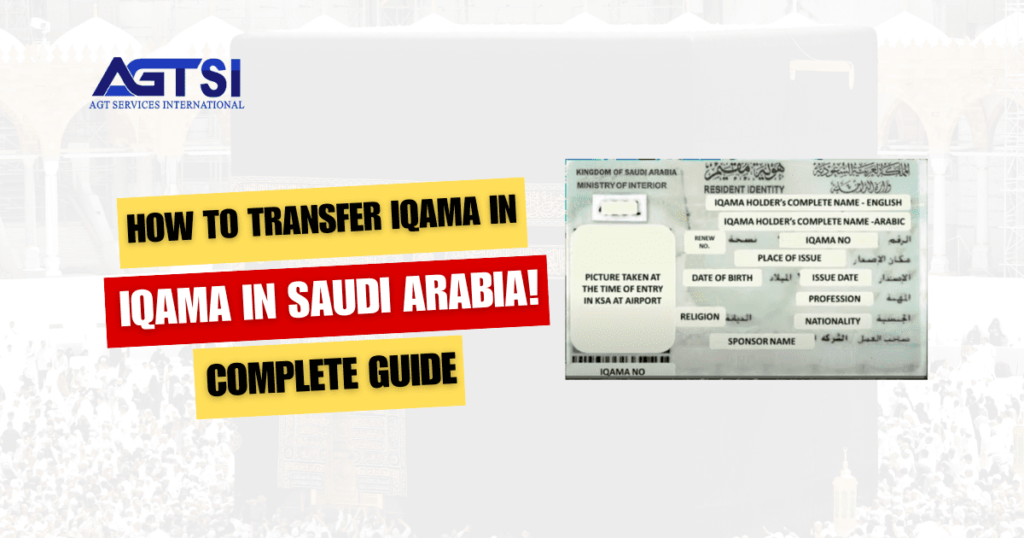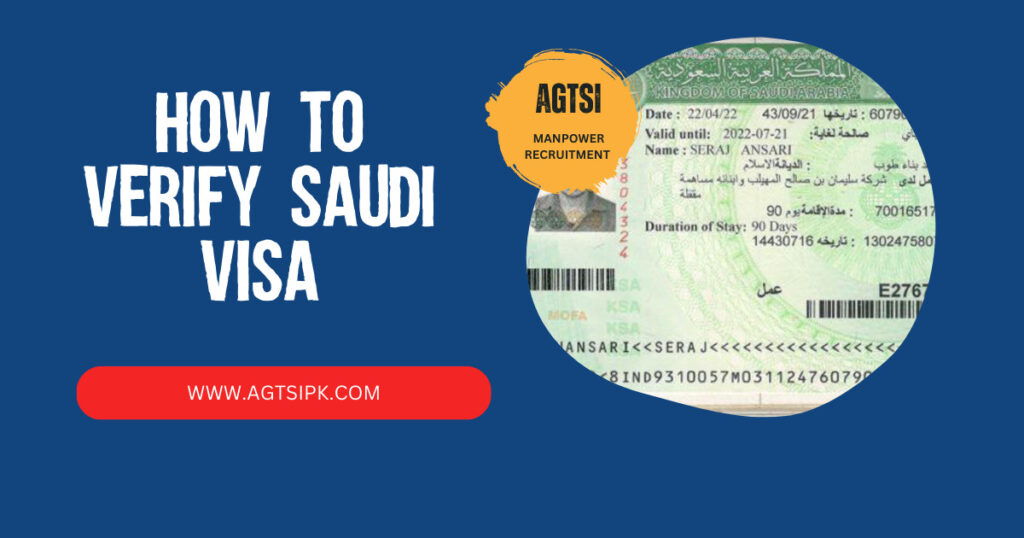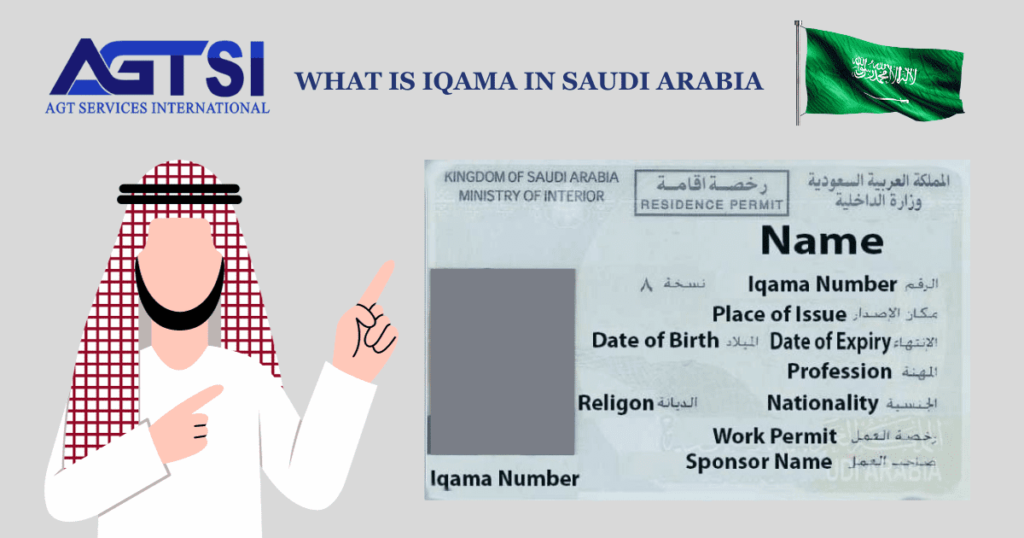Introduction: Transfer Iqama
Transitioning to life as an expatriate in Saudi Arabia is an extraordinary journey, marked by its own set of legal complexities. Much like the process of obtaining an Iqama, the fundamental work permit in the Kingdom, transfer Iqama when switching jobs or sponsors within the country is a crucial aspect of your expatriate experience. In this comprehensive guide, we’ll navigate the process of Iqama transfer in Saudi Arabia, ensuring you’re well-prepared, just as we explored the complexities of obtaining an Iqama and managing family Iqama in previous articles.
Understanding Iqama Transfer
An Iqama transfer, which involves changing your sponsorship in Saudi Arabia, typically happens when you switch jobs. This process can be quite intricate, mainly relying on your current employer’s policies and willingness to facilitate it.
Moreover, there are associated costs with an Iqama transfer. You’ll need to cover the official fees as well as any additional charges that your employer might impose. This procedure usually takes several weeks to a few months, so it’s crucial to initiate the transfer request promptly.
However, there’s a challenge here. Not all Iqamas are transferable, and whether yours can be transferred depends entirely on your current sponsor. If your current sponsor rejects your transfer request, it becomes impossible for you to join a new company. To address this issue, Saudi Arabia has introduced new regulations to make the process more flexible.
Understanding Iqama Transfer and Sponsorship Transfer
“Transfer Iqama” and “sponsorship transfer” in Saudi Arabia refer to the same process of changing your legal residency sponsorship from one employer to another. It involves obtaining a new job offer, securing a No Objection Certificate (NOC) from your current employer, and submitting the required documents to the authorities for approval. Once approved, you receive a new Iqama with your new sponsor’s name. It’s crucial to follow the specific procedures and stay informed about any legal changes that may affect the process.
New Iqama Transfer Rules for Saudi Arabia Foreign Workers
One of the most significant developments for foreign workers in Saudi Arabia is the elimination of the requirement for employer consent to transfer Iqama. Before 2021, seeking permission from your current employer was mandatory, making job mobility challenging. However, since March 2021, these rules have changed in favor of expatriate workers.
With these fresh regulations in place, you don’t need your current employer’s approval to travel abroad, switch sponsors, or switch jobs anymore. These rules grant you more freedom and flexibility in your career decisions. This opens up new opportunities and freedom for expatriate workers in Saudi Arabia.
Understanding Iqama Transfer Charges: Variations Based on Your Situation
- If you’re a domestic worker in Saudi Arabia, the initial Iqama transfer typically costs 600 Saudi Riyals (SR), and the renewal fee is 350 SR.
- If you’re a worker aged 18 or above, the combined Muqeem insurance and renewal fee amounts to 500 SR.
- On the employer’s side, when they appoint you as their worker for the first time, they need to pay 2000 SR. This fee increases by 2000 SR with each subsequent transfer
Common Reasons for Transfer Request Rejection
To ensure your transfer request isn’t declined, it’s vital to be aware of the situations where the Ministry might reject your application. Let’s go through these scenarios to help you avoid any issues while seeking a new opportunity in Saudi Arabia.
A: Expired Passport:
Your application will be automatically turned down if your passport has expired. Renew your passport in advance to avoid any issues when it expires.
B: Final Exit or Re-entry Stamp:
If your passport carries a final exit or re-entry stamp, your transfer request won’t be considered.
C: Criminal Record:
Individuals with a criminal history won’t be eligible for this new initiative in Saudi Arabia.
D: Traffic Violations:
If you’ve violated traffic rules, it might affect your chances of transferring to a new job.
E: Runaway Status:
If you’ve been marked as a runaway, you won’t be eligible for participation in this program.
To enhance your chances of success, remember these key points before applying for a new job under the updated rules.Remembering these considerations will assist you in smoothly maneuvering through the application procedure.
Conditions for Iqama Transfer Without Kafeel (Employer’s) Consent
While the rules have eased, there are specific conditions you must meet to transfer your Iqama without your kafeel consent. These conditions can be categorized into two main types:
1: Auto-Transfer
2: Court Approval.
1: Iqama Auto-Transfer Conditions
Auto-transfer conditions are instances where your Iqama can be automatically transferred without requiring your current employer’s consent. Here are some key scenarios:
A: Delayed Iqama Issuance:
If your current employer fails to provide you with an Iqama within three months of your arrival in Saudi Arabia, you are eligible for an auto-transfer.
Recommended: How to renew Iqama in Saudi Arabia?
B: Expiry of Iqama:
After your Iqama or work permit expires, you can apply for an auto-transfer just three days after the expiry date.
Recommended: How to Easily Check Your Iqama Expiry Date?
C: Unpaid Salaries:
If your Kafeel/employer hasn’t paid your salaries for over three months, you have the right to transfer your sponsorship.
D: Red Nitaqat Category:
If your employer (Kafeel) falls into the Red Nitaqat category and doesn’t fulfill specific contractual obligations, you can initiate a transfer.
Recommended: How to Easily Check Your Iqama Status Online in 2023? Red Nitaqat
E: Huroob Declaration:
If your employer declares Huroob (absconding report) against you, you have 60 days to transfer your sponsorship.
Recommended: How to Check Iqama Huroob Status Online?
2: Instances Requiring Court Approval for Iqama Transfer Without Sponsor
In some cases, you may need court approval to transfer your Iqama. These conditions include:
F: End of Employment Contract:
When your contract with your current employer ends, you can apply for a transfer through court proceedings.
G: Reporting a Commercial Cover-up (Tasattur):
If you discover any illegal cover-up activities in your organization, you can request a transfer with court approval.
H: Court Judgment in Your Favor:
If a court issues a judgment in your favor, allowing you to transfer sponsorship, you can proceed.
I: Before Completing the Contract:
If you’ve been in Saudi Arabia for at least 12 months, you can request a transfer by providing a three-month notice, as per Article 77.
The Process of Iqama Transfer Online Through Qiwa
Auto-Transfer Process (Conditions A-E)
For those who meet the conditions (Which have discuss above) for auto-transfer, the process is relatively straightforward:
A: New Kafeel’s Request:
Your new sponsor (Kafeel) initiates an employee transfer request through the Qiwa platform.
B: Ministry of Labor Approval:
The Ministry of Labor (MOL) typically approves the request within 24 hours, bypassing the need for approval from your old Kafeel.
C: Application Status Check:
You can monitor the status of your Iqama transfer application on the MOL’s official website.
D: Payment of Iqama Transfer Fee:
Once the MOL accepts your application, you’ll need to pay the Iqama sponsorship transfer fee, typically ranging from SR 2000 to SR 6000. Thing to Notes: In certain cases, employers or sponsors might request you to share part of the expenses for this procedure. However, it’s important to note that according to Saudi law, employers are responsible for covering the entire cost of this process, leaving no financial burden on the employee.
E: Absher Check:
Keep an eye on your Iqama status using the Absher application. When your new employer appears on Absher, your application is nearly complete.
F: Visit Jawazat:
Finally, visit a Jawazat (Passport Office) center to print your new Iqama.
If the online procedure encounters issues, your new Kafeel can visit the Labor Office for manual processing.
Court Approval Process (Conditions F-I)
For conditions requiring court approval, the process involves the following steps:
A: New Kafeel’s Visit:
The new Kafeel visits the labor office with all required documents, including the court ruling.
B: Maktab Amal Review:
The Maktab Amal officer reviews the court ruling and other documents, then updates the Iqama sponsorship in the MOL system.
C: Application Status Check:
You can track the status of your Iqama transfer application on the MOL’s website.
D: Payment of Iqama Transfer Fee:
Similar to auto-transfer, you’ll need to pay the Iqama sponsorship transfer fee.
E: Absher Check:
Verify your Iqama status on Absher, and once your new employer appears, visit a Jawazat center to print your Iqama.
Required Documents for Transfer Iqama
The necessary documents include your Iqama, passport copy, court ruling, and a request letter from your new Kafeel, attested by the Chamber of Commerce, explaining the reason for the transfer.
Transfer Iqama for Domestic Workers
Domestic workers in Saudi Arabia also have rights to transfer their Iqama under certain conditions, such as non-payment of salaries, threats to safety, or contract termination within the probation period. The process is similar, involving labor office proceedings.
Final Thoughts: Iqama Transfer
Transfer Iqama in Saudi Arabia without your employer’s permission is now more accessible than ever due to recent changes in labor laws. Understanding the conditions and procedures for Iqama transfer is crucial for expatriate workers, as it grants them greater freedom and opportunities within the Kingdom. Whether you’re eligible for an auto-transfer or require court approval, knowing your rights and responsibilities in this process is essential for a seamless transition between sponsors or jobs.
Recommended: Manpower Recruitment Services for Heavy Machinery Operators
Recommended: Manpower Recruitment Services for Facility Management Industry
Recommended: Manpower Recruitment Services for Construction Industry
Recommended: Manpower Recruitment Services for Mechanical Industry




















